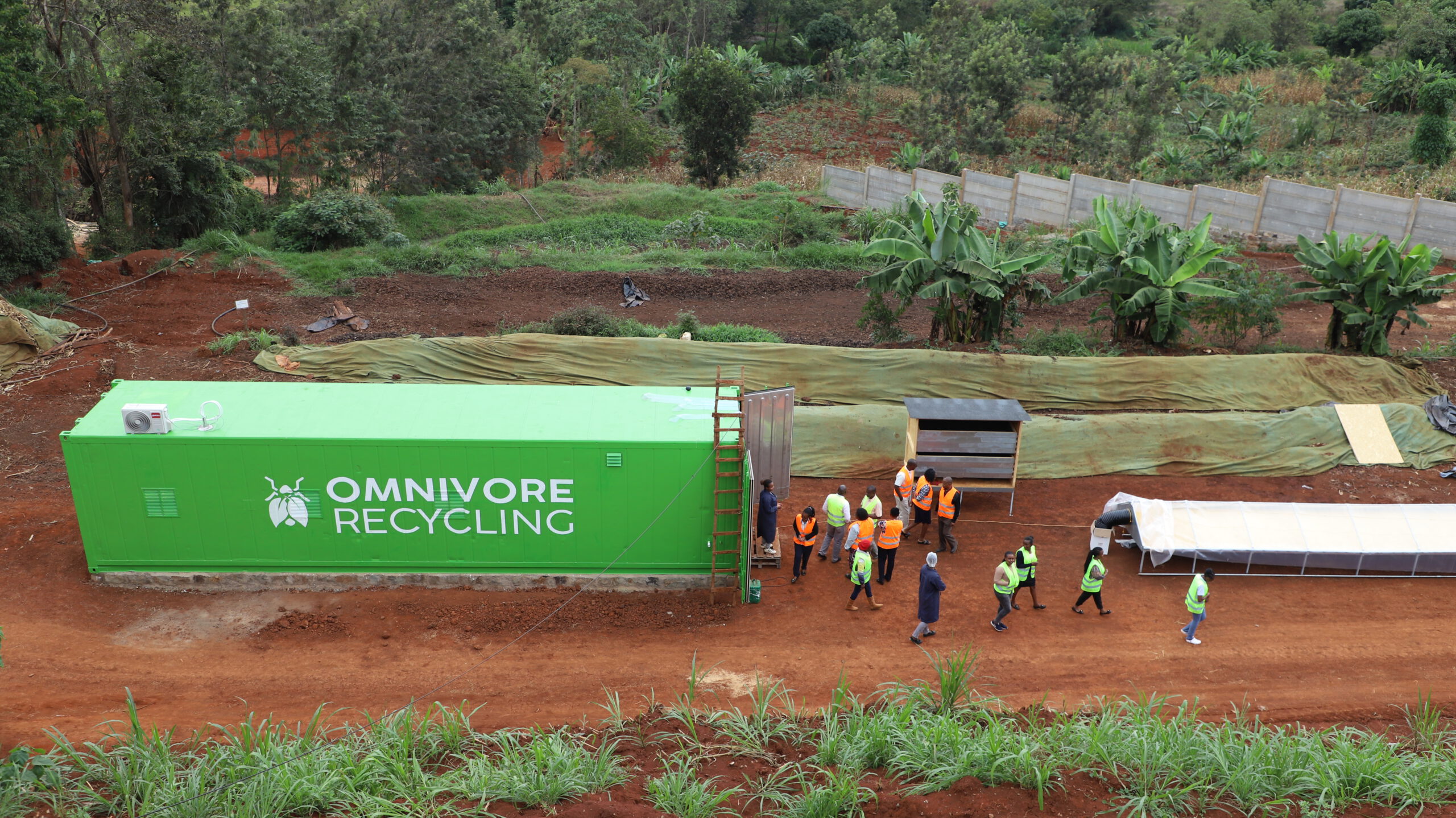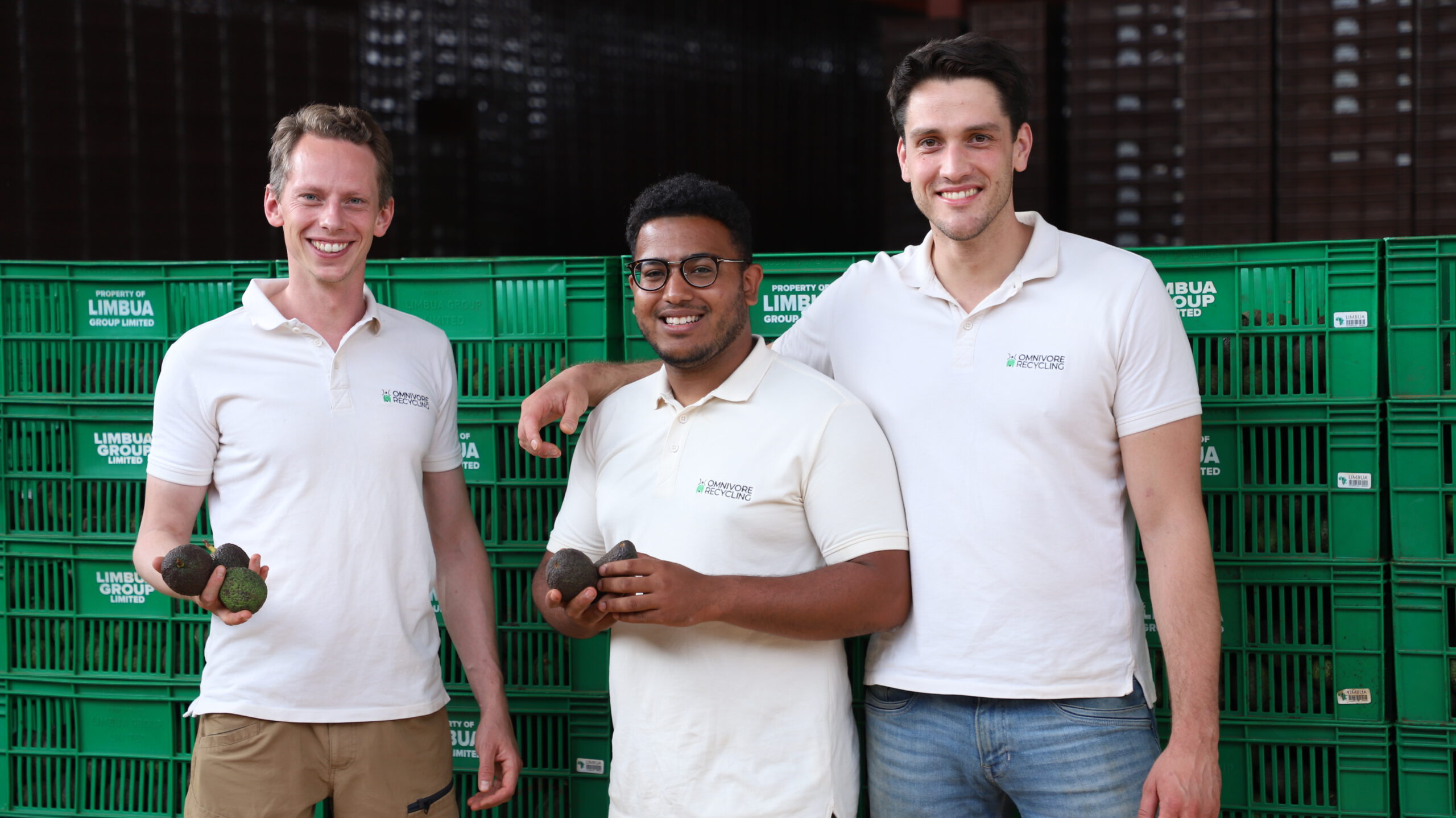Upcycling of industrial avocado waste in Kenya
In many African countries, food waste is a major challenge, often ending up in landfills where it decomposes and releases methane—a greenhouse gas significantly more potent than CO₂. At the same time, smallholder farmers face high costs for animal feed and fertilizers, limiting their productivity. Upcycling organic waste offers a sustainable solution by converting it into valuable resources such as protein-rich insect feed and organic fertilizer, reducing both environmental impact and agricultural costs.


To demonstrate this potential, a pilot project has been established in Kenya in collaboration with Limbua.
The project utilizes an innovative recycling container to test and validate different waste streams under semi-industrial conditions. Organic by-products, such as avocado waste, are processed into black soldier fly larvae, which provide an affordable and sustainable feed source for chickens and fish. The remaining frass serves as a natural fertilizer, improving soil health without relying on synthetic alternatives. By preventing methane emissions, lowering input costs for farmers, and promoting circular agriculture, this project serves as a scalable.
